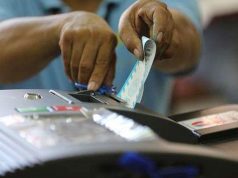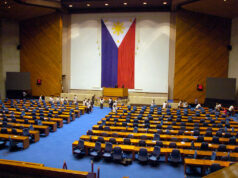Duterte says gov’t ‘doing our best’ in Marawi rehabilitation as group laments slow progress
PRESIDENT RODRIGO R. Duterte outlined hurdles in the rehabilitation of Marawi, which was left in ruins by the battle between state forces and local terrorist groups that took hold of the city in 2017, as he assured residents that the government is doing its best in the rebuilding process. “You know, Marawi is not that easy,” Mr. Duterte said in a televised talk Monday evening. “We started it and we are at it already because… the clearing of explosives ang matagal (took time). Then we have to contend with (land) titles… there’s no title that is really very clean,” he said. The Marawi Reconstruction Conflict Watch, an autonomous monitoring group composed of various stakeholders, lamented the slow implementation of the reconstruction program. “Even if some have benefited from what has been achieved so far, the majority of our people haven’t. The sad fact remains that progress is slow, funds are lacking, and implementation could be improved,” the group said in a statement over the weekend as the country marked the third year of the end of the five-month Marawi siege. “Tensions rise over land and property rights as reconstruction activities start. These may worsen existing identity-related conflict and may trigger violent flashpoints and a stringing of conflict — a situation ripe for the resurgence of violent extremism, the thing that the government declared we have been liberated from,” it added. Secretary Eduardo D. Del Rosario, chair of the inter-agency Task Force Bangon Marawi that is handling the rebuilding program, said construction works are now on “full blast” after the emergency response debris management, and bomb-clearing operations “that took around two years to complete.” In a statement on Tuesday, he said a P3.56 billion fund was released in April and May, although mobilization was slowed down by restrictions due to the coronavirus outbreak. “But we remain on track, we have the methodology in the rehabilitation and we are well within the time frame of completing all major infrastructures by December 2021,” Mr. Del Rosario said. “The money is there. Do not worry,” the President said, “We are doing our best. We did not ask for this fight. We had to destroy because it was the only way to put down the enemy.” — Gillian M. Cortez
Manila’s youth leaders, households to get urban farming training
THE TECHNICAL Education and Skills Development Authority (TESDA) has partnered with a farm school to teach urban farming to Manila City’s youth leaders and selected households. TESDA Director-General Isidro S. Lapeña signed on Tuesday an agreement with OMA Farming School Corp. President Carmelita Banta-Belgica for the program intended to help address food security amid the coronavirus crisis. “Food sufficiency is a concern not only of the country’s agriculture areas, and rice producing regions. This is a cause of concern in all areas, including urbanized cities, especially now that we are facing this pandemic,” Mr. Lapeña said. An initial 100 people, including Sangguniang Kabataan officials, will undergo training. In the same event, OMA Farming School was also launched as the first private technical training institution that offers technical and vocational education, and urban farming training in Manila. — Revin Mikhael D. Ochave



